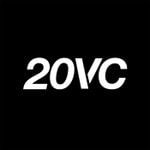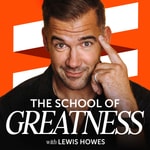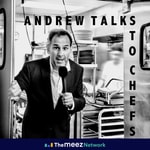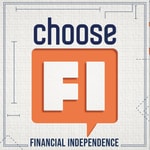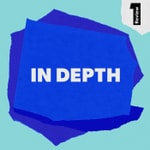What Can We Do In These Powerful Times? – Détails, épisodes et analyse
Détails du podcast
Informations techniques et générales issues du flux RSS du podcast.
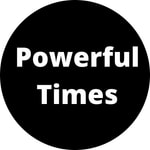
What Can We Do In These Powerful Times?
David Bent
Fréquence : 1 épisode/16j. Total Éps: 47

Classements récents
Dernières positions dans les classements Apple Podcasts et Spotify.
Apple Podcasts
🇬🇧 Grande Bretagne - careers
09/12/2024#99
Spotify
Aucun classement récent disponible
Liens partagés entre épisodes et podcasts
Liens présents dans les descriptions d'épisodes et autres podcasts les utilisant également.
See all- https://www.effectivealtruism.org/
699 partages
- https://thomashuebl.com/
560 partages
- https://www.calm.com/
327 partages
- https://twitter.com/Powerful_Times
48 partages
- https://twitter.com/GreenRupertRead
7 partages
- https://twitter.com/mattnzl
3 partages
Qualité et score du flux RSS
Évaluation technique de la qualité et de la structure du flux RSS.
See allScore global : 48%
Historique des publications
Répartition mensuelle des publications d'épisodes au fil des années.
Rupert Read
dimanche 19 mai 2024 • Durée 53:41
Rupert Read is Co-Director of the Climate Majority Project, and Emeritus Professor of Philosophy at the University of East Anglia, and former spokesperson for Extinction Rebellion (Twitter, Website, Wikipedia entry).
The Climate Majority Project has the mission to "accelerate effective, coordinated climate action by a broad-based coalition of citizens; from grassroots initiatives to high-level policy". Rupert left the relatively stability of academia to wholeheartedly focus on CMP.
Temperature records are falling, and there are signs that climate change is accelerating. For Rupert, the paradoxical insight is that now is not the time to get more radical, but to be ready to welcome more people into the climate movement. Experiencing the weird weather will be the best recruiter into climate action.
In the interview, Rupert unpacks the four strands of the Climate Majority Project:
- Truthfulness. Shifting the public narrative about climate change towards the truth, through skilful messaging.
- Cultures of awareness and resilience. Facing the truth together and taking action calls for inner resources and communities of support.
- Serious action. Helping people from many backgrounds take meaningful action to help drive the systemic change we need.
- Building shared understanding. Developing the identity and vision of the emerging mass movement, and helping people see that they are powerful together.
Core to the Climate Majority Project is depolarisation, because acting on climate over the long-term needs to be a broad project which reaches across classes, political orientations, identities.
As you might expect from a former philosophy professor, there is a great deal of nuance to Rupert's views. One is that there is no shortcut. Just as a technological fix to our predicament is an illusion, so is revolution. He's wants to create a future which is not based on illusion, which involves a transformation over time, it's going to take the time of political culture.
Rupert very much believes that, yes, the problem is overwhelmingly vast but when you start to see yourself as part of a huge coming wave of action, and you start to feel yourself as part of that, then it's exciting and energising you no longer feels so puny, or hopeless.
Collectively, we are in a time of call-and-response between how the geophysical situation is getting worse, but the human response is also accelerating. The Climate Majority Project is the kind of thing we need so the human response can deal with the geophysical situation, more than just reforming the status quo but not taking the shortcut of revolution, nor settling for ruins.
Links
Rupert's books here.
MP Watch
Community Climate Action
Wildcard
General Counsel Sustainability Forum
Cadence Roundtable
The Deluge By Stephen Markley -- here
More notes
Twitter: Powerful_Times
Website hub: here.
Please do like and subscribe, to help others find the podcast.
Thank you for listening! -- David
Erica Austin
dimanche 12 mai 2024 • Durée 40:33
Erica Austin is a social entrepreneur, community weaver, facilitator, photographer and Christchurch Ambassador (LinkedIn). She describes her self as a multi-potentialite, or someone with activities in many fields. As we will hear, in Erica's case, this is something of an understatement.
I was first introduced to her as the Community Activator in the Edmund Hillary Fellowship, a community of 500+ innovators, entrepreneurs and investors committed to New Zealand as a basecamp for global impact. (I am an Edmund Hillary Fellow.)
We have a very rich conversation, touching on many huge themes.
One is culture and identity, especially in a place with strong indigenous and colonial heritages plus inward immigration.
As her introduction (using the Maori tradition of Pepeha) makes clear, Erica was born in China, moved to Aotearoa New Zealand when she was young. We talk about Aotearoa New Zealand as both a bicultural and a multicultural nation: "acknowledging that, that Maori people are the first people who've arrived in this land, and then comes multiculturalism, to be able to then create a space for all people to thrive". How she is part of something she calls re-indigenisation, not decolonisation.
Another theme is neurodiversity. Erica was diagnosed with ADHD when she was young, and really sees this as her superpower, which allows her to connect with other people, and people with places.
One consequence is that Erica is involved in many things, and has organised her work according to the Sustainable Development Goals (or SDGs).
Erica's priorities for the next three years are integrating indigenous practice and knowledge into our modern world, and growing the idea of a learning ecosystem, where people are not just learning in schools, not learning just in the organisation, but actually creating multiple different pathways for them to understand and learn to create better future, the future focus learning opportunity.
We did this interview in November 2023, and I remember being energised for days afterwards. I've just re-listened and again have a buzz from Erica's energy, her ambition, her practices of connecting people, and her uses of her superpower.
Links
Te Pūtahi Centre for Architecture and City Making
Ako Ōtautahi Learning City Christchurch
Taonga -- treasure
Tangata Tiriti – Treaty People
More on the SDG 0 story here.
More notes here
Twitter: Powerful_Times
Website hub: here.
Please do like and subscribe, to help others find the podcast.
Thank you for listening! -- David
Tim Jackson
Saison 1 · Épisode 35
samedi 18 février 2023 • Durée 59:36
Prof Tim Jackson is a British ecological economist and professor of sustainable development at the University of Surrey (personal website, twitter, wikipedia). He is the director of the Centre for the Understanding of Sustainable Prosperity (CUSP), a multi-disciplinary, international research consortium which aims to understand the economic, social and political dimensions of sustainable prosperity. He is also a successful playwright.
It was an extraordinarily rich and honest conversation, covering (and this is just a taste):
- Moving from playwright to accidental economist because of the Chernobyl disaster.
- Allowing the playwright aspect to explore the conflicts within himself on the economics of prosperity.
- The struggles of being an outsider pushing at the mainstream.
- Trying to create a society based on the vastness of meaningful relationships and purposeful lives, rather than the flat, narrowness of economic growth.
- The need for partnership culture, rather than a domination one, though still with some role for competition that encourages us all to raise our game, without fearing we'll lose everything.
- Providing capability to the next generation, so voices of today have the space to speak, while having respect for how the past generations helped created that space.
- The importance of following your north star, and treating challenges to you from the status quo as the crucible that forms you.
I make an quotation error. it was Max Plank (not Thomas Khun) who said that scientific revolutions proceed one funeral at a time. Towards the end, Tim makes a similar error: Ode: Intimations of Immortality was Wordsworth, not Tennyson.
Tim uses one swear word (f*ck) as part of a story about being rejected by mainstream economists.
Links
Latest book: Post-Growth -- Life After Capitalism
Previous book: Prosperity Without Growth (must read, by the way).
Timings
0:55 - Q1 What are you doing now? And how did you get there?
9:37 - BONUS QUESTION: Do you feel that you've combined that storytelling of being a playwright into the analytics of being an economist?
21:00 - Q2. What is the future you are trying to create, and why?
27:27 - BONUS QUESTION: The future Tim is trying to create, inspired by past thinking, is a society based on meaningful relationships. But has it existed in practice? And is there a practical way of getting from where we are now?
43:04 - Q3. What are your priorities for the next few years, and why?
51:14 - Q4. If someone was inspired to follow those priorities, what should they do next?
54:50 - Q5. If your younger self was starting their career now, what advice would you give them?
57:26 - Q6. Who would you nominate to answer these questions, because you admire their approach?
58:40 - Q7. Is there anything else important you feel you have to say?
Twitter: Powerful_Times
Website hub: here.
Please do like and subscribe, to help others find the podcast.
Thank you for listening! -- David
Andrea Hartley
Saison 1 · Épisode 36
samedi 4 février 2023 • Durée 35:24
Andrea Hartley is Founder and CEO of Skating Panda, a creative social impact consultancy (Twitter, LinkedIn).
DISCLOSURE: I do some work for Skating Panda as 'Senior Associate -- Strategy and Sustainability'. In the 12 months to April 2023, that work comprised about 18% of my income.
We speak about Andrea's three priorities
- Unlocking those individual and organisational impact journeys,
- Finding ways to communicate big issues so that they can better have real impact
- Shifting the nature of consulting so that it acknowledges and acts for positive impact as much as possible.
Links
B-Corp, a certification scheme so that people can trust when companies claim they are 'for-benefit' (in contrast to being exclusively 'for-profit').
Climate Quitting - here is KPMG saying that "One in three 18–24-year-olds have rejected a job offer based on ESG record"
Jonathon Wise at Purpose Disruptors - mission: catalyse the advertising industry's climate transition to align with the 1.5C degree IPCC global warming target.
Effective Altruism is a "research field and practical community that aims to find the best ways to help others, and put them into practice." It is worth knowing there are some very important and strong critiques of Effective Altruism. For instance, here (£) The Economist shows how the commitment to "strong long-termism can also lead people to disregard common-sense moral commitments to living people".
My view: while a commitment to rigour on impact and getting 'bang for buck' is laudable, too often Effective Altruism is used as a cover for today's billionaires to perpetuate a status quo that they are successful in, rather than a better world for billions. As such, whatever the intentions of the founders and participants, I fear it has become an intellectual justification for on-going oligarchy, and so for preventing fundamental change.
Timings
0:48 - Q1 What are you doing now? And how did you get there?
8:57 - Q2. What is the future you are trying to create, and why?
12.01 - Q3. What are your priorities for the next few years, and why?
21:29 - Q4. If someone was inspired to follow those priorities, what should they do next?
26:55 - Q5. If your younger self was starting their career now, what advice would you give them?
30:09 - Q6. Who would you nominate to answer these questions, because you admire their approach?
34:21 - Q7. Is there anything else important you feel you have to say?
Twitter: Powerful_Times
Website hub: here.
Please do like and subscribe, to help others find the podcast.
Thank you for listening! -- David
Dougald Hine
Saison 1 · Épisode 34
samedi 4 février 2023 • Durée 53:53
Dougald Hine is author and co-founder of Dark Mountain, a cultural movement of people who have "stopped believing the stories our civilisation tells itself" and a School Called HOME, a "a gathering place and a learning community for those who are drawn to the work of regrowing a living culture" (personal website, Substack, wikipedia).
His latest book is "At Work in the Ruins", which we discuss at length in the conversation. At the beginning Dougald describes himself as "using words, and sometimes silences, to shift the space of possibility", which I think underplays his role as curator and community builder.
One way of understanding Dougald's response to these powerful times is that he sees them as showing that our world, the world of modernity, is ending.
Rather than moving into denial or a desperate fixing, Dougald is making 'good ruins' for whatever might be next, through creating pockets of living culture. He is trying to contribute to the possibility of presently-unimaginable futures, which starts with clearing away the stuff that has colonised the currently-imagined future.
I have read the book and heartily recommend it. To buy the book, and find the latest on Dougald's tour in Feb 2023, follow this link.
Links
'Hospicing Modernity: Facing Humanity's Wrongs and the Implications for Social Activism' by Vanessa Machado de Oliveira (aka Vanessa Andreotti).
More on Dougald's partner, Anna Björkman, here.
A Small Farm Future: Making the Case for a Society Built Around Local Economies, Self-Provisioning, Agricultural Diversity, and a Shared Earth by Chris Smaje
Timings
0:50 - Q1. What are you doing now? And how did you get there?
7:53 - BONUS QUESTION: Tell us something of the genesis of Dark Mountain?
12:00 - BONUS QUESTION: Tell us something about the start of a School Called Home?
18:11 - BONUS QUESTION: Give us a pen portrait of the book, At Work in the Ruins.
32: 54 - BONUS QUESTION: What are the strongest good faith arguments against what you are saying?
37:00 - Q2. What is the future you are trying to create, and why?
42:20 - Q3. What are your priorities for the next few years, and why?
46:42 - Q4. If someone was inspired to follow those priorities, what should they do next?
49:55 - Q5. If your younger self was starting their career now, what advice would you give them?
52:30 - Q6. Who would you nominate to answer these questions, because you admire their approach?
52:46 - Q7. Is there anything else important you feel you have to say?
More here
Twitter: Powerful_Times
Website hub: here.
Please do like and subscribe, to help others find the podcast.
Thank you for listening! -- David
Robin Alfred
Saison 1 · Épisode 33
mardi 31 janvier 2023 • Durée 40:04
Robin is an executive coach, facilitator, a mediator, an organisational consultant, works in leadership development and sometimes known as a mystic (Twitter, LinkedIn, Website).
Our conversation concentrates on the importance of feeling present, and being fully open to what is happening in that moment. Only then can we integrate the past, and not be unconsciously driven by it. Only then can we hear the calling of the future, and act courageously towards something different. Only then can we act in alignment with a deeper ethics.
This is all very much at the spiritual end of acting in these powerful times. You can read about my own experience on a previous version of Robin's course, Leading from the Future, is in this blog 'Facing the Future'. Here is the current one (as at Jan 2023) Leading from the Future programme (starts 14 Feb 2023).
Links
Findhorn Foundation (and on wikipedia here).
Robin's course on The Art of Facilitating Transformational Fields.
Otto Scharmer on wikipedia
When Robin talks of 'the bottom of the U' he's referring to Scharmer's Theory U.
Timings
0:58 - Q1 What are you doing now? And how did you get there?
21:19 - Q2. What is the future you are trying to create, and why?
25:45 -- BONUS QUESTION: What values are embedded in taking the next evolutionary step?
27:46 - Q3. What are your priorities for the next few years, and why?
30:02 - Q4. If someone was inspired to follow those priorities, what should they do next?
34:02 - Q5. If your younger self was starting their career now, what advice would you give them?
36:11 - Q6. Who would you nominate to answer these questions, because you admire their approach?
37:33 - Q7. Is there anything else important you feel you have to say?
More here
Twitter: Powerful_Times
Website hub: here.
Please do like and subscribe, to help others find the podcast.
Thank you for listening! -- David
Liam Black
Saison 1 · Épisode 32
samedi 21 janvier 2023 • Durée 43:49
Liam Black has a long history of leading social enterprises (including Jamie Oliver's Fifteen), and is now 'Chief Encouragement Officer' and mentor to many (website, Twitter, LinkedIn).
In his own career, Liam has made many jumps into the unknown. His view is if you are clear about the work you want to be doing, then taking the jump gives others the chance to recognise what your'e trying to do and to offer you help (including, maybe a job).
Also that "if you do things with good intention, with enough advice from the right people, you can always come back from whatever mistake you make". Putting it another way, in the long-term it is better to try than not.
Liam's book is "How to Lead with Purpose: Lessons in life and work from the gloves-off mentor". Buy it here.
Links
Furniture Resource Centre is now known as the FRC Group have a "social mission to reduce and ultimately end furniture poverty".
Book: There's No Business Like Social Business: How to Be Socially Enterprising (with Jeremy Nicholls).
Background on Jamie Oliver's Fifteen here.
Wavelength executive education business.
Together All is "a safe, online community where people support each other anonymously to improve mental health and wellbeing".
The Conduit is "a new workspace for changemakers in the heart of London".
"Life can only be understood backwards; but it must be lived forwards." Soren Kierkegaard
The iron law of megaprojects: over budget, over time, under benefit. -- Bent Flyvberg
Timings
0:50 - Q1. What are you doing now? And how did you get there?
8:27 - BONUS QUESTION: Is there a way you can tell in advance that you're ready to make that jump? is how can you have the confidence to jump? How did you get there?
15:47 - BONUS QUESTION: To make the leap, you are saying you need the direction and guide rails but not lots of constraining details?
17:58 - BONUS QUESTION: One of the recommendations in the book is to have alignment between your platform and your purpose. What do you man by 'platform'?
26:00 - Q2. What is the future you are trying to create, and why?
33:00 - Q3. What are your priorities for the next few years, and why?
35:17 - Q4. If someone was inspired to follow those priorities, what should they do next?
40:11 - Q5. If your younger self was starting their career now, what advice would you give them?
41:18 - Q6. Who would you nominate to answer these questions, because you admire their approach?
42:25 - Q7. Is there anything else important you feel you have to say?
More here.
Twitter: Powerful_Times
Website hub: here.
Please do like and subscribe, to help others find the podcast.
Thank you for listening! -- David
Clare Farrell
Saison 1 · Épisode 31
samedi 14 janvier 2023 • Durée 57:39
Clare Farrell is a co-founder of Extinction Rebellion, as well as fashion designer and lecturer (Twitter, website).
Clare had a lot of deeply interesting things to say across a broad range of topics. So, this episode is the longest yet at 57 mins. I make no apology, as every minute is worth listening to. Just want to give you a heads up.
She speaks about the coming together of Extinction Rebellion as a magical time: "It's a huge honour really. So too, in like, basically, I feel the universe sort of collided the right people at the right time. And enough of us were like crazy enough to go: oh, yeah, like, whatever. Let's try and do that."
Clare is trying to create a different approach to politics, here "ordinary people have agency, and the ability to take part in the way decisions are made". On the need for deep change to address the climate emergency, Clare believes that "ordinary people are way ahead of the people in power".
As you will pick up, I hugely admire Extinction Rebellion for many things, including the core message: a positive future possible if only we were willing to tell the truth on the challenges we face and act for it. For the most part, the first wave of XR was successful in creating a sense of a festival, which modelled a more vibrant, more inclusive, positive future, where we will still have to deal with the consequences of our actions up to this point.
Clare ends with this:
"This work that we do is absolutely made of love....Whatever your opinion about me...[It] absolutely comes from ..the best possible intention to try and make something better out of a wholly depressing and heartbreaking, tragic situation."
Clare occasionally swears (a*-holes, sh*t, f*cked that kind of thing).
Links
Penguin publishers book with Extinction Rebellion: 'This is Not A Drill'.
More on the Extinction Rebellion symbol and how since inception it has always been a strictly anti-consumerist project.
For criticism of David Attenborough, see George Monbiot's piece.
More on situationism on wikipedia.
Nafeez Ahmed on the flawed social science behind XR's change strategy.
Merchants of Doubt on wikipedia.
One way into the material found by the US Congress on the Oil and Gas companies' lipservice to Net Zero.
An exploration of the evidence base behind radical tactics by James Ozden. In a second post, James also explores how he could be wrong.
More here.
Twitter: Powerful_Times
Website hub: here.
Please do like and subscribe, to help others find the podcast.
Thank you for listening! -- David
Daianna Karaian
Saison 1 · Épisode 30
mardi 15 novembre 2022 • Durée 34:31
Daianna Karaian is co-founder of Today Do This, which aims to empower everyone, every day (Today) to take action on (Do) what matters to them (This) (LinkedIn, personal website, Twitter).
The theme was people being able to take meaningful action in their work. Why?
First, "The scale of the change that's needed is only going to happen if social and environmental considerations are woven into the daily decisions and responsibilities of everyone in the company at every level in every department."
Second, "I think there's this really common misconception that action is reserved for those in power, that sort of only a few people, in powerful positions can do anything that makes any difference in the world. And I think that's nonsense. I think power is accumulated by those who take action."
Third, taking meaningful action also makes people happier and more productive.
With that in mind, some things you can do after listening to this interview:
-Subscribe to the Today Do This newsletter, which "revisits one major headline each week and suggests a simple, practical action you can take that day to make a difference".
-Contact Daianna through this link.
Links
Powerful Times Podcasts referred to in to interview: Ed Gillespie (the very first!) and Rowan Conway.
Dr Martin Luther King's Six Steps for Non Violent Social Change:
- Information Gathering
- Education
- Personal Commitment
- Negotiation
- Direct Action
- Reconciliation
UN Sustainable Development Goals
Timings
0:50 - Q1 What are you doing now? And how did you get there?
10:57 - BONUS QUESTION: How do you support people so social and environmental considerations are woven into the daily decisions?
16:32 - Q2. What is the future you are trying to create, and why?
21:00 - Q3. What are your priorities for the next few years, and why?
22:37 - BONUS QUESTION: Can you unpack what you meant when you said you don't like the word purpose compared to impact on?
24:40 - Q4. If someone was inspired to follow those priorities, what should they do next?
29:16 - Q5. If your younger self was starting their career now, what advice would you give them?
31;45 - Q6. Who would you nominate to answer these questions, because you admire their approach?
32:33 - Q7. Is there anything else important you feel you have to say?
More here
Twitter: Powerful_Times
Website hub: here.
Please do like and subscribe, to help others find the podcast.
Thank you for listening! -- David
Zahra Davidson
Saison 1 · Épisode 29
mardi 15 novembre 2022 • Durée 38:13
Zahra Davidson is Chief Executive and Design Director of Huddlecraft, a Community Interest Company that uses the the practice of combining people to unearth and multiply potential (Zahra's Linkedin, Twitter and Medium). Huddle craft asks: 'What if everyone could multiply their potential by the power of their peers?'
We talked about how collective learning is so necessary for global transformations, but how to contribute at the necessary scale while keeping the important relational, often local, character of individual peer learning groups.
Links
I think Huddlecraft's About Us page is a Masterclass in formulating and communicating an organisation's strategy (it covers: landscape, north star, puzzle focused on, alchemy that gives hope (ie methods), ecosystem, outcomes, compass to guide decisions).
Ummah -- "Arabic word that means 'community', ...it is commonly used to mean the collective community of Islamic people."
More on microclimates in Huddlecraft.
Example Huddles:
-Sheffield Pioneers: place-based leadership.
-Father Figures: exploring 21st century fatherhood.
Zahra's blog on creating a surge of peer-to-peer movements.
Upcoming Huddles to join.
Timings
0:45 - Q1 What are you doing now? And how did you get there?
6:40 - BONUS QUESTION: What does Huddlecraft mean by microclimate, and what makes for a good microclimate?
11:48 - BONUS QUESTION: Can you give us some examples of some of the inquiries people have taken off some of the peer learning that has happened within Huddlecraft so far?
17:30 - BONUS QUESTION: is it fair to say that HUddlecraft has taken for a very distributed approach which mimics living systems and nature?
20:45 - BONUS QUESTION: How do you get right combining intimacy with scale?
22:28 - Q2. What is the future you are trying to create, and why?
29:30 - Q3. What are your priorities for the next few years, and why?
31:26 - Q4. If someone was inspired to follow those priorities, what should they do next?
31:26 - Q5. If your younger self was starting their career now, what advice would you give them?
33:21 - Q6. Who would you nominate to answer these questions, because you admire their approach?
34:45 - Q7. Is there anything else important you feel you have to say?
More here.
Twitter: Powerful_Times
Website hub: here.
Please do like and subscribe, to help others find the podcast.
Thank you for listening! -- David

